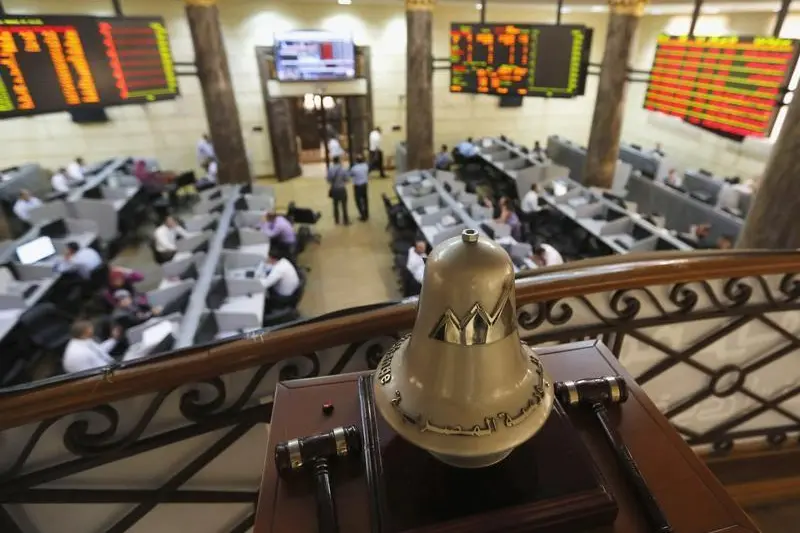PHOTO
Egypt currently stands out as a promising market for merger and acquisition (M&A) transactions. In 2021, the total volume of M&As increased by 49%, with 233 deals, and the deal value jumped by 486% compared to 2020, recording a total of $9.9 billion, according to a Baker McKenzie report.
Both domestic and cross-border deals have witnessed an increase in volume and value. The same report expects further growth in M&A transactions across multiple sectors including high-tech, education, healthcare, oil and gas, telecoms, fintech and ESG.
The economic crisis spawned by the Russian war on Ukraine is expected to accelerate the pace of acquisition deals in Egypt, specifically inbound cross-border ones.
Two months into the war, hoping to replenish the country’s dwindling foreign reserves, President Abdel Fattah el-Sissi asked the Egyptian government to prepare public offerings of more government-owned as well as military-owned companies.
Here is a list of the key deals sealed during the first half of 2022 in no particular order.
1. ADQ acquired stakes in 5 listed companies for total of $1.8 bn
In April, the Emirati holding company ADQ made five transactions to acquire stakes in Commercial International Bank (the country’s largest private bank), Fawry (Egypt’s leading e-payment giant), Alexandria Container Handling, Abu Qir Fertilizers and Misr Fertilizers Production Company (MOPCO). The largest deal was ADQ’s acquisition of nearly 340 million shares in Commercial International Bank for $911.457 million. Through a separate deal worth $391.945 million, the Emirati sovereign wealth fund bought 271.573 million shares in Abu Qir Fertilizers and Chemical Industries. In addition, the Egyptian Stock Exchange announced that ADQ had bought 45.832 million shares in MOPCO for $266.553 million. Separately, the four-year-old fund acquired 476.721 million shares valued at $186.067 million in Alexandria Container Handling. ADQ also bought 215.124 million shares in Fawry in a $68.59 million deal.
2. Saudi’s GLT Express takes over Gallop Express
Also in April, Saudi logistics company GLT Express acquired Egypt’s two-year-old courier services startup Gallop Express for an undisclosed sum. GLT Express, the logistics arm of GLT Holdings, said the acquisition was part of a larger plan aimed at expanding its footprint beyond the GCC countries. Commenting on the acquisition in a company statement, CEO Mark Humphries noted that Egypt was the 39th largest e-commerce market, with revenues of $5 billion in 2021.
3. Homzmart acquires Germany’s MockUp Studio
In an outbound M&A transaction, Egypt’s online furniture marketplace Homzmart announced its acquisition of Berlin-based technology company MockUp Studio for an undisclosed amount. The German company’s technology will allow Homzmart users to visualize their furnished home and explore different layouts with a 360-degree view, according to a company statement. Founded in 2020, Homzmart has secured $ 15.9 million in funding from key global and regional investors, including MSA Capital, Nuwa Capital, Rise Capital, Impact46, EQ2 Ventures and Outliers Ventures. Last year, the company announced that its sales had witnessed a 30X growth. These figures had encouraged the company, whose marketplace showcases more than 55,000 products, to expand for the first time beyond Egypt’s borders and enter the Saudi market in November.
4. US-based Astute Imaging LLC acquires DilenyTech
In March, US-based Astute Imaging LLC acquired Egypt’s Healthtech DilenyTech for an undisclosed amount. Founded in 2018, DilenyTech employs AI technologies to smoothen the radiology workflow. The company has developed solutions for medical imaging analysis, breast cancer risk assessment, and synoptic reporting. Through this deal, according to a company statement, Astute Imaging is seeking to incorporate DilenyTech’s AI solutions into its offerings. The region’s startup data platform Magnitt has hailed the deal as “the highlight” of Egypt’s entrepreneurial exits in the H12022.
5. Bank Misr almost fully acquires Banque du Caire
In April, Bank Misr, Egypt’s second largest government-owned commercial bank, raised its stakes in Banque du Caire from 57.14 percent to 99.99 percent in a deal valued at nearly $366 million. For almost 12 years, Banque du Caire, another state-owned bank, has undergone sweeping internal restructuring. The recent acquisition is believed to be part of the government’s plan to ultimately offer the bank on the stock market and hence attract more foreign investments. The acquired bank’s net profits jumped from EGP 3.2 billion in 2020 to EGP 3.6 billion in 2021, marking a 15-percent increase, according to the local press.
6. Egypt’s fast-growing MNT-Halan and Talabeyah
In June, the fintech company MNT-Halan announced its full acquisition of Talabeyah, a B2B e-commerce platform that offers FMCG supplies to small merchants and retailers. Neither the terms nor the value of the deal was disclosed. Founded in 2020, Talabeyah build an online platform where FMCG retailers could have access to a wide range of products and reliable and clear pricing. As to Halan, it started in 2017 Egypt’s first two- and three-wheeler ride-hailing and delivery app. Since then, Halan has moved into the fintech business by launching its e-wallet, bill payment services, e-commerce with BNPL, and micro, nano and consumer loans. In 2021, Halan entered a share swap agreement with MNT, a Netherlands-based microlending company. The company showed potential to become Egypt’s next fintech giant after securing $120 million in funding last year from global and regional investors.
7. EFG Hermes’ Tanmeyah takes over Fatura
Also in June, Tanmeyah for Microfinance Services, a subsidiary of EFG Hermes Holding, announced that it had acquired Fatura Netherlands, a Cairo-based provider of B2B e-commerce marketplace and digital solutions. As part of the deal, Fatura became fully owned by Tanmeyah. EFG Hermes has been one of the key investors of the two-year-old startup Fatura. The deal is expected to help Fatura introduce new products while granting Tanmeyah access to the startup’s growing merchant base and boost its digital transformation. Since its inception in 2019, Fatura has expanded its operations across 22 of Egypt’s 27 provinces and served more than 60,000 merchants. As to Tanmeyah, it serves 391.000 clients and runs a portfolio of more than $208 million.
(Reporting by Noha El Hennawy; editing by Seban Scaria)




















